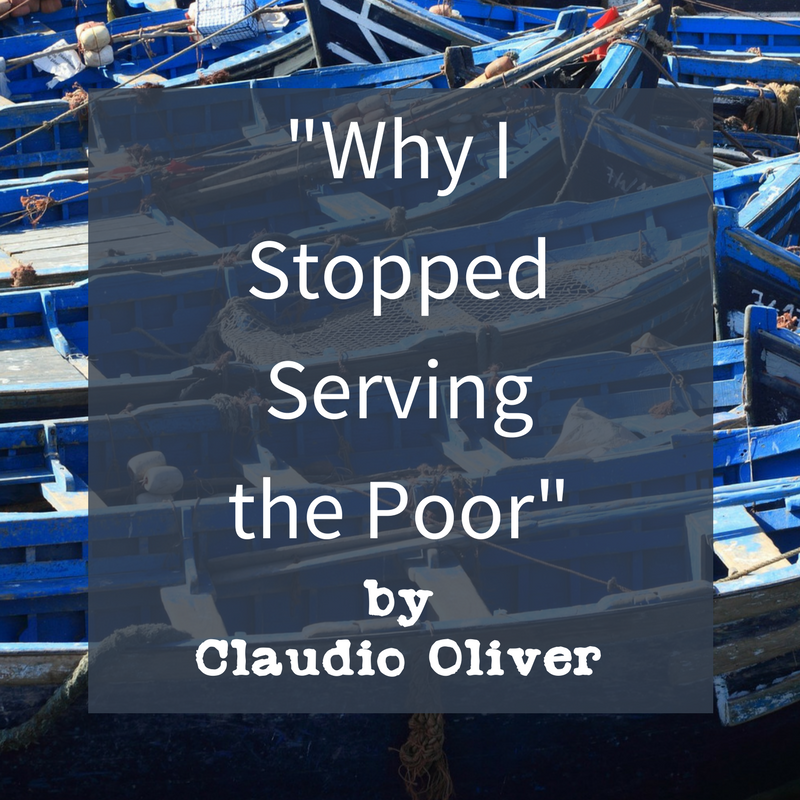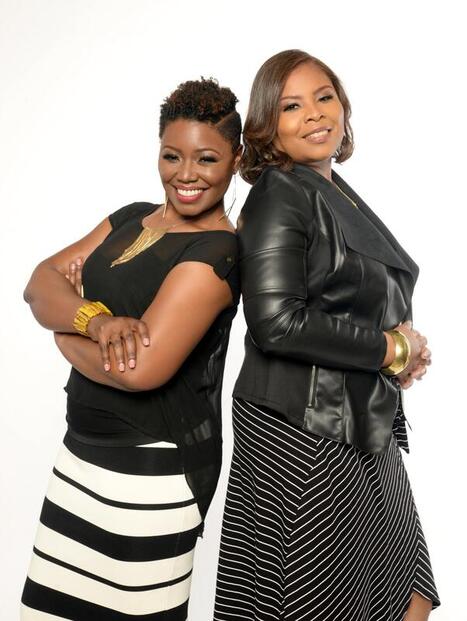 This Wednesday, I am highlighting a good friend of mine, Latresia "Sweet" Peak and her good friend, Holly Harris. The two just released their debut album, 2 for the Price of 1 on June 1. Sweet and Holly have been singing for as long as they can remember. They are both worship leaders with a strong desire to see the Body of Christ & beyond experience the power of worship. They have had the privilege of serving in their local churches, various groups and para-church ministries. Sweet and Holly met on the campus of UNC Charlotte as students and members of Children of the Sun Cultural choir. COS became the catalyst for a friendship that later blossomed into a musical partnership. In early 2017, Sweet and Holly joined forces to plan their first live recording. In doing so, they were able to split cost, encourage one another and benefit from each other's strengths and connections. However, this was more than just a great practical idea, it was a God idea. Coming together required humility, selflessness, self assuredness, patience and a relinquishing of control. In addition, they experienced the hand of God miraculously move in the area of provision! One of my favorite songs on the album is called Talk About It which has a juke-joint vibe: If we say that love covers a multitude of sin, then why are Sunday services so segregated? Can we talk about it? Let's talk about division Let's talk about our past Let's talk about hatred Let's talk about crime Let's have a dialogue And get it all off our chest How are we to ever reconcile our differences? Sweet wrote it a few years ago when police killings were happening regularly. "I had a conversation with a friend who was a believer and we were discussing race and I thought not only is the world segregated, but so is the church," Sweet said. "I hope the song makes everyone stop and think: Am I helping to build bridges of reconciliation or am I building walls of division? How can we each individually be the change? How can we communally be the change?" Awesome God is another great song on the album: Your sovereign Lord, You reign You reign from age to age This whole world can pass away but Your Word will never fade We stand in awe of You and our praise can't be contained So in spirit and in truth We will bless Your holy name "Awesome God is a mid-tempo worship song about the sovereignty of our God. From the beauty of His creation to the breath we breathe, His glory surrounds us all! It was my goal to write a song that expressed how incredible He is," Holly said. "As a result, my hope is that all would experience His presence and love." If you are interested in having Sweet and Holly come and sing at your event or church, send an email to tornroofent@ gmail.com If you are interested in Sweet leading a conversation about racial justice, email Sweet at latresiap@ yahoo.com with the subject "Race Relations". You can help them out by sharing their music, following them on Spotify, listening to their music, having (paying!) them come to your church and sing, and sharing this post!
0 Comments
This is an excerpt taken from To Save Many Lives: Exploring Reconciliation between Africans and African Americans through the Selling of Joseph
This is a unique look at the story of Joseph and the ways in which reconciliation can be found through its study. For more about Nilwona, visit her website or her Facebook page. 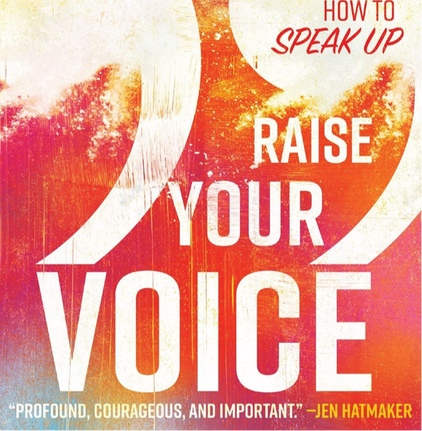 The following is an excerpt, taken with permission, from Raise Your Voice by Kathy Khang. Preorder your copy today! I believe that Christians desire and can handle more complexity. Race and reconciliation can no longer be framed solely as a justice issue but rather as core to the gospel, theologically grounded in the imago Dei (the image of God). As Christians, if we truly believe we are all created in God’s image, and that God the Creator had a hand in developing, creating, and shaping not just our embodied souls but also the places and spaces we steward and have dominion over, then reconciliation with one another is not merely an option—it’s part of God’s mandate. It requires us to speak up and speak out. In order to do so, we need to address personal development, which happens within the context of community. In some communities, certain voices are erased and suppressed while others are amplified and elevated. The concept of “voice” isn’t only what is said or written but also includes how identity is expressed in words and deed. Voice is not limited to what comes out of my mouth but out of my being. “The Latin word vox, meaning ‘voice,’ and the related word vocare, meaning ‘to call,’ give us the root voc or vok. Words from the Latin vox or vocare have something to do with the voice or with calling. Anything vocal is produced by the voice. A vocation is the work that someone is called to do as a job. To evoke is to call forth. To invoke is to call on for aid or protection. To provoke is to call forth another’s anger. The word voice also has vox as its root.” (Word Root of Vocation, Merriam-Webster Dictionary) The challenge to raise your voice is about doing the good work of the good news. It’s about calling forth others: an invocation for all and a provocation to some. Our lives should affect the world around us if we are bearers of God’s image as well as an embodiment of good news. Living as a Korean American Christian woman, there is something critical about speaking from a place of wholeness and uniqueness that makes my voice part of a community but also uniquely mine. It fills in the blanks left in others’ stories. When more of us from different intersections and margins raise our voices, we live a fuller picture of the good news. "We usually hear in the church about the quiet and gentle spirited woman and in my mind she is the type of woman who is super patient and has the gift to hold her tongue when in distress and I get the message I should strive to be like her. Then we hear about the strong willed woman and the way she’s typically described is as the one who wears the pants at home and doesn’t take no for an answer and I should distance myself from her. But this woman of valor in Proverbs 31 seems like she’s neither."
… For more read the rest of Mekdes' article here. Check out her website here. "When I was asked how I could possibly be a Christian given the history of Black people in America –the oppressive tyranny and terror that was endorsed, supported, and upheld by the Church, not to mention the current silence from Evangelicals regarding the same oppression –I would just shrug. Those two things, my Blackness and my Christianity, were never in conflict, because I’d allowed neither to touch me, let alone each other. They were two distinct and separate identities.
... When I read this it was as if the hot-handed History of my people, the one that I had avoided for so long, seared through sinew and skin; battled through bone and connective tissue, to lay claim to my heart. As I started to connect myself to the history of my people by reading their stories and sermons and spirituals as Dr. Cone lays out in his book, I came to see how the Gospel exists in America." - J. E. Johnson For more, read the rest of her article here. Check out her website: www.prettyforablackgirl.com "Yes, drugs like crack cocaine are illegally distributed through street pharmacists, and drugs like oxycodone are legally prescribed from doctors. But both substances are an opioid and millions of people in the U. S. are addicted.
So why does one merit the reference public emergency epidemic and the other merit the reference as criminalized behavior? Let’s stop polarizing addiction based off of one’s skin color, ethnic background, and/or economic status." Read more from: America Only Started Caring About the Opioid Epidemic When It Hit Suburbia: Only when the victims are white does our government pay attention at Alternet.com Also check out more of Randiesia's work by visiting her website: http://www.randiesiafletcher.com/ and follow her on Twitter @bttr2gethr Click the image above to see April's full re-imagined Psalm 23 (with the letter H) at her website https://aprilyamasaki.com
On Immigration and the Church
Immigration is certainly not political for Gricel. It’s personal. Gricel is from New York City. “All of my family all the way back as much as I can trace is Puerto Rican. My parents and grandparents migrated to the U.S. wanting a better life. Times were tough and poverty was rampant, and the hurricanes—actually very similar to the situation that is happening right now. The plan was always to go back, but my mother and father never got to. They are both buried in Puerto Rico. That was their desire.” “Immigration is personally tied to my story and so is colorism. It’s extremely personal to me. In our family we have different shades. My mother was blonde, white, and had green eyes. My father was very dark skinned and had course hair. So even though they were both Puerto Rican, there was racism because of their skin color.” This is why she—an ordained pastor in the Evangelical Covenant Church—fights for racial egalitarian justice. On Racial Egalitarian Justice “When I say racial egalitarian, I’m purposely putting race in there because we don’t put those in the same context. What has happened over centuries is that Western Christianity is very patriarchal, very white; and when feminism came in there was a stigma that it was a white movement. It was for white women. All of the marches were organized with white women, by white women, for white women. So Latinas often felt marginalized once again, but now by the feminist movement. ‘Mujerista’ or ‘Latina’ theology … African Americans use ‘womanist’ or liberation theology because they could never identify with feminism … they were not at the same economic level as white Americans, or at the same education level like white America. Even though many of us women of color have overcome in areas of education in the 21st century, there is still inequality with the pay, the positions, the authority, and the power. What should have been something for all women became more of an exclusive movement for the ‘right’ women. In this case the ‘right’ woman was the white woman. And it’s bled into every other area,” she said. “There’s the importance of reframing our narrative and an urgency to do it sooner than later. We need to create spaces where we can have these types of conversations. These are the conversations that I’m longing for,” she said. “Egalitarianism … I didn’t know what that meant in an immigrant church. I knew about equality, I knew about feminism. I knew I wanted my relationships to be equal. I knew that, but I didn’t have the hundred-dollar word ‘egalitarian.’ “When I went to research the term, it felt to me—as a Latina—to be exclusive of my story because it didn’t talk about culture. And you cannot authentically reach people of color about egalitarianism without talking about culture,” she said. “We easily target the things that are irrelevant in Western America and therefore we miss the reality of the authentic story. We don’t take time to listen attentively to the story. The important thing is that stories need to be told, and they should be told by the person who has lived the story. I don’t want you to eliminate my voice in my story,” she said. “The narrative of culture has been absent in egalitarian spaces. They have not done their homework and not seen how important it is to integrate the language of culture and ethnicity in the movement of egalitarianism. Silence is consent, no matter how you slice it. When you don’t talk about it, stereotypes grow in power. Self awareness is so important,” she said. On Language and Dialogue Gricel has ideas on how the church can combat this. “The first thing we have to really learn is that language is powerful. Words are powerful. Words can be inclusive, and words can be exclusive. So when we do things with women and equal rights, we have to be careful that our words are not creating more of a gap in the existing marginalization of women of color,” Gricel said. “Because we don’t see things like you. We don’t have the same experience, and so it becomes a chess game so to speak. We always feel like women of color are always going to get checkmate because we go into these arenas from a deficit from the beginning.” She said that the church needs to be aware that their words, including the wording they use on materials, the platforms, and the visuals which so often exclude the people who look differently than the dominant culture. Conferences often become an experience of pain. “What should be an experience of celebration becomes an experience of pain,” she said. “The [visuals of conferences] tell us another story. We have a lot of work to do. When you go to these conferences especially as a person of color it’s just a harsh reality that much is still the same.” “We can’t continue to talk about the dialogue: ‘Oh everything is great and there is no racism,’” she said. “That in itself brings pain; and racism brings marginalization and seclusion and isolation. It devalues us as human beings. The reality is people of color often aren’t represented; we don’t see us up there. It’s perpetuating a culture of silence because we choose not to talk about it. We’ve never really had this conversation and continued it to its conclusion. We start it, then we zip it, and then we go ‘OK’ and walk on. There’s not a completeness to our conversations on racism. There’s not a complete circle where you go deeper and deeper. We always stay on the outer perimeter of racism, and we always stay on the outer perimeter of egalitarianism. Even when we do have these conversations, they are primarily white and academia theorizing about people when many of them have not been in the trenches and haven’t been on the mission field. People who speak from head knowledge,” she said. On Listening “We need to listen,” Gricel said. “Because we aren’t listening, we are just screaming or talking over each other. We need to stop the incendiary language. We need to have dialogues, conversations, and if it’s painful for you to hear my story, it’s OK. That’s part of the process because my story includes pain, so don’t stop listening because you are uncomfortable with my pain. If you would just move past your discomfort you might learn something about empathy and compassion and mercy and justice … if you just stop thinking about yourself and listen to the stories of others. It’s not about me when I’m listening to someone’s story, it’s about that person. As I listen to that story, I learn from the story. And we aren’t listening to the story. It’s like we are interrupting between the story. When people say things like, ‘If America is so bad why don’t you just go back from where you came from,’—those types of things shut down conversations,” she said. “The biggest accomplishment would be to stop thinking about ourselves when someone else is telling their story.” “For all of us in justice and missions and on the front lines and in the trenches, we really need to probe language and pay attention to how we tell the stories. Because the mission field is right here. I learn by listening to the stories of those around me. As I listen to their stories, I respect them. Listening is respecting. Listening to someone from another culture, engaging with them, and entering into their pain is a sign of respect and honor. We have lost the importance of honoring. We have lost our ability to honor someone who is different from us,” she said. “God, in his plan, made us to be a mosaic of different stories, of different colors, of different perspectives and vantage points,” she said. “In order for us to do missions in the 21st century—missions is now in our back yard—we do missions by listening, by engaging, by honoring and respecting the stories people share.” On Conferences and Church “In everything that we do, a writing conference, women’s conference, men’s conference, pastors’ conference or missions conference, we have to think in color. Everything from the beginning to the end of the planning stages has to be done with color in mind because if not when a person of color comes into the conference they are going to see white. Sterile,” she said. “Those types of atmospheres were never designed for us, they are not for us to camp in, they aren’t meant to comfort us. They aren’t nurturing places. We have made the church that way.” “If you have made your church a hospital, not a lot of people want to come in. I don’t know of anyone who really enjoys being in a hospital, but people respond favorably to places where they receive proper care. Churches and any Christian conference needs to be a healing place, a place of comfort, of safety—another issue for people of color, many do not feel safe in Western Christianity. This translates into the mission field. Jesus said go into all the world, learn about who they are, what’s their experiences. Paul knew about Corinth and the Ephesians. He learned about their cultures and their idols so that he could speak to that. He was coming against the things that were culturally erroneous there. ‘Let me tell you about the unknown God.’ He went into that world and he related to them.” “We have taken culture out, and culture is one of the most important tools to reach people with the gospel. Food is part of culture, music is part of culture, the arts. I know many creative people who are just artistic, extremely gifted, and when I talk to them about God, I first talk to them about their paintings and I can see that the gift comes from God. As I look at what they are painting, I can tell they have painted from pain, or joy, or a difficulty, and I ask them to tell me their story. That’s the way that I can come in. People will open their doors to you if you respect and honor them, when you love them unconditionally, and when you don’t have a hidden agenda,” she said. Advice for a Young Immigrant Christian Woman “Stop trying to be someone else. Be yourself,” she said. “People in the 21st century are tired of the plastic, of people talking about vulnerability, but not practicing it. That is key to women today because we are promoting perfectionism, and perfectionism is counterproductive. The only perfect one is God,” she said. “The stories of people are not pretty, but yet the church says just tell us the pretty stories. Do you see the oxymoron there? The church tells women to tell the pretty stories, because when you tell us the ugly stories you make us feel uncomfortable,” she said. “But you don’t have any way or any right to rewrite my history so that you can be comfortable.” “Crying is not pretty. We need to let people cry. And no, it’s not going to be pretty, but it’ll be healing, and it’ll be restoring. We’re teaching our young women that you have to be strong and fierce all the time. And I believe in strong and fierce, I am strong & fierce, but not all the time. There are times I need a shoulder … I need to be able to release the suffering and the pain and the things that I can’t change,” she said. “I have three women that have stage 4 cancer, it’s not pretty. I don’t have an answer for them. All I can do is walk with them and hear their story.” “Crying is not pretty, life is not pretty, ministry is not pretty, and as a woman pastor it infuriates me when people like Piper say ‘Go home and shut your mouth.’ Who are they to pretend to know about my story and my calling? Do you really think that I would pick this? I have better things that I would have loved to do: paid me more money, I’d be in a bigger house, nicer clothes, get me some Jimmy Choo shoes—get out of here. What women would choose to be pastors? This is the hardest most difficult thing I have done in my entire life. There are times I wake up and I don’t want to do this. ‘God I am really mad at you that you chose this.’ People are nasty and ugly,” she said. She said that she was told at a conference that she would be allowed to speak but she was not allowed to step up to the pulpit and speak from there. She fought against it. “I’m not speaking from down here. Those days are over,” she said. “It’s hard. But when a 15-year-old Latina is in the audience because her mother came and brought her, and she comes up to me and says, ‘I have been praying because I want to preach the gospel and I didn’t see any woman that looks like me doing it, and today I saw you.’ It’s not about me, it’s about God using me,” Gricel said. “We need the visuals. It saddens me when I go to these conferences when its monochromatic because of all those women who are asking themselves, ‘Can I do that? Can I preach the gospel? Can I go to seminary? Can I lay my hands on someone? Can I pray in a public setting? Can I write a book? And they see someone who looks like them, that talks like them, and they say ‘Yes, God that’s my confirmation.’ For those young girls out there, and those seminarians that are thinking of quitting seminary. … God is listening and yes, it is hard, and sometimes they wonder if they can make it another week. So for all those POC let’s show them visuals. That’s what we are here for. That’s what we are here for,” she said. Follow Gricel on twitter @pastorGricel Be here, be whole, show up with all of your bright, un-matching, non-casserole colors and a good side of Korean freckles, take up that space at the table, grab your spoon. Be fearfully & unapologetically you.
--Tasha Burgoyne https://tashajun.com/2018/03/14/when-being-mixed-makes-you-an-interruption/ Click the image above to see Colletta's full post at her website collettarhoads.com
|
Gena's
|

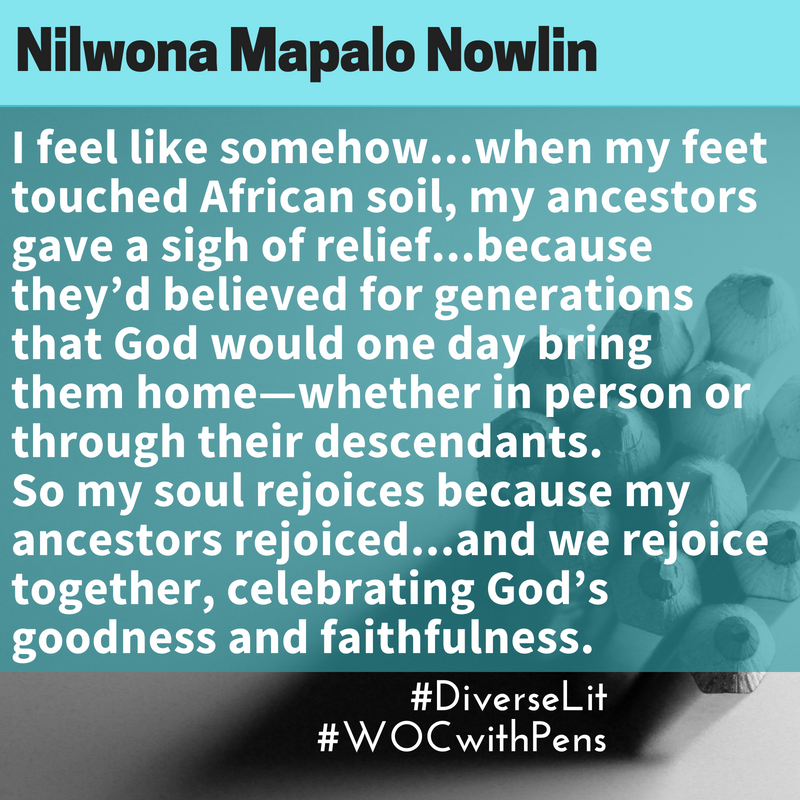
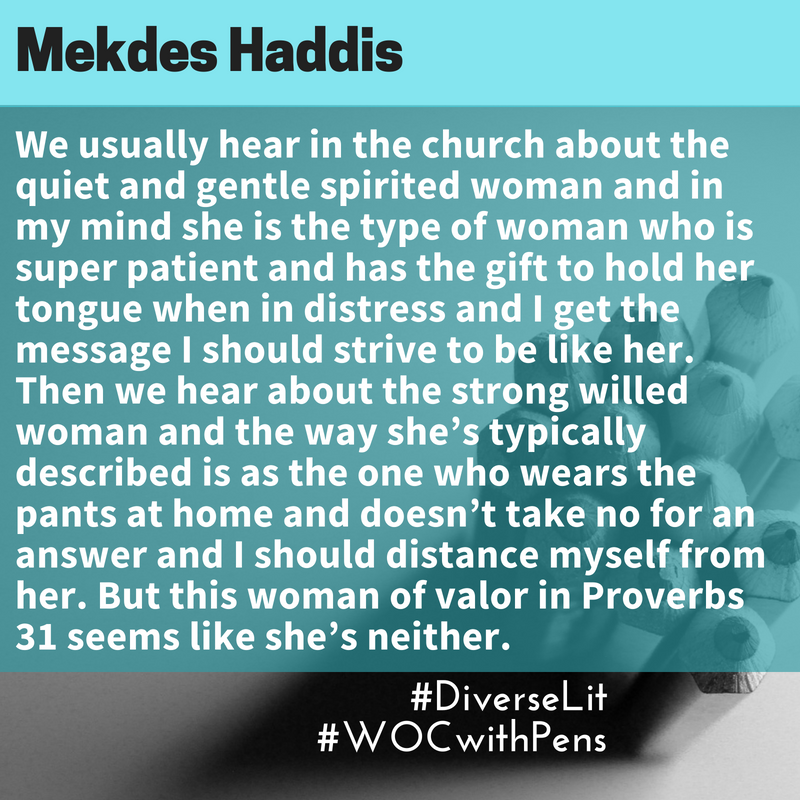
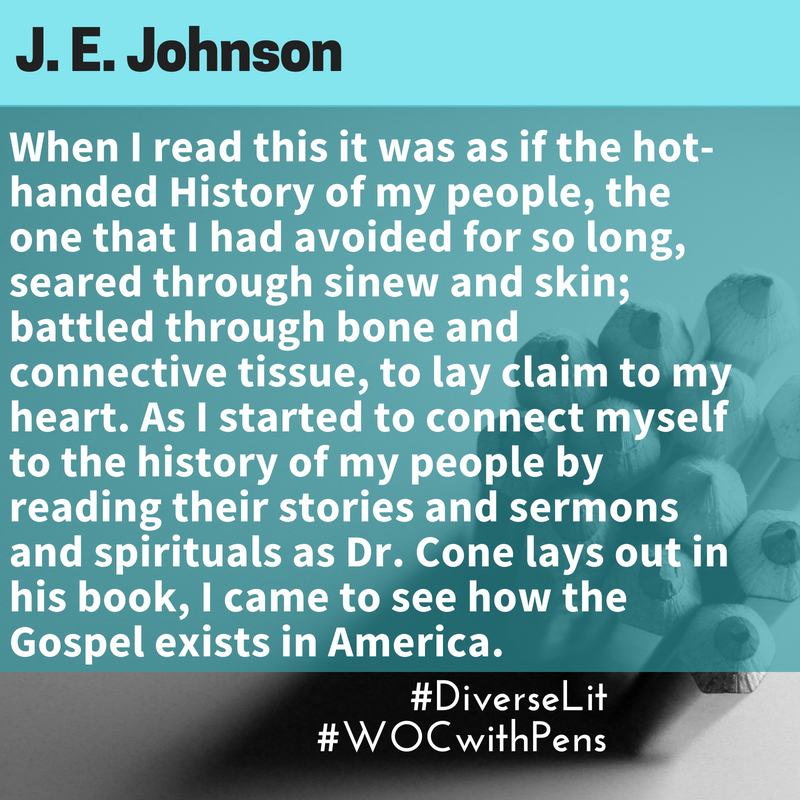

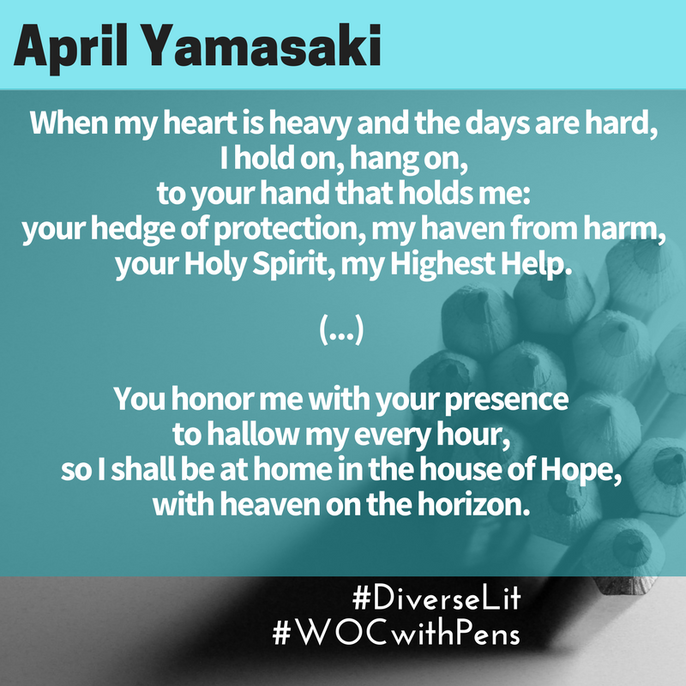
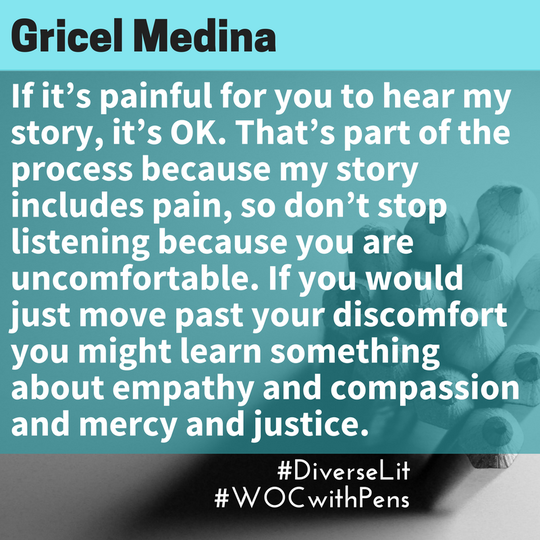
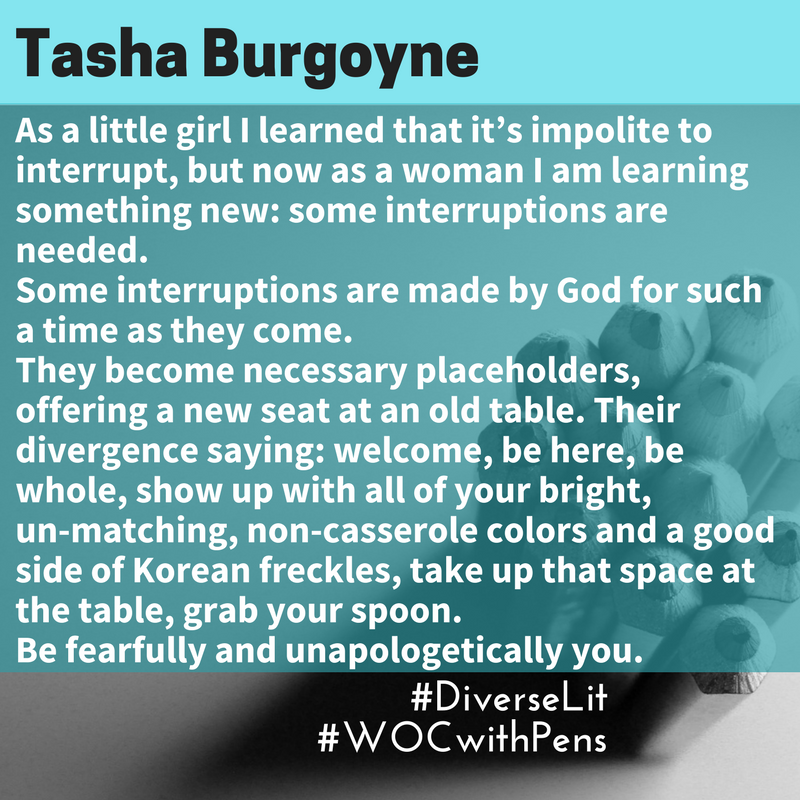
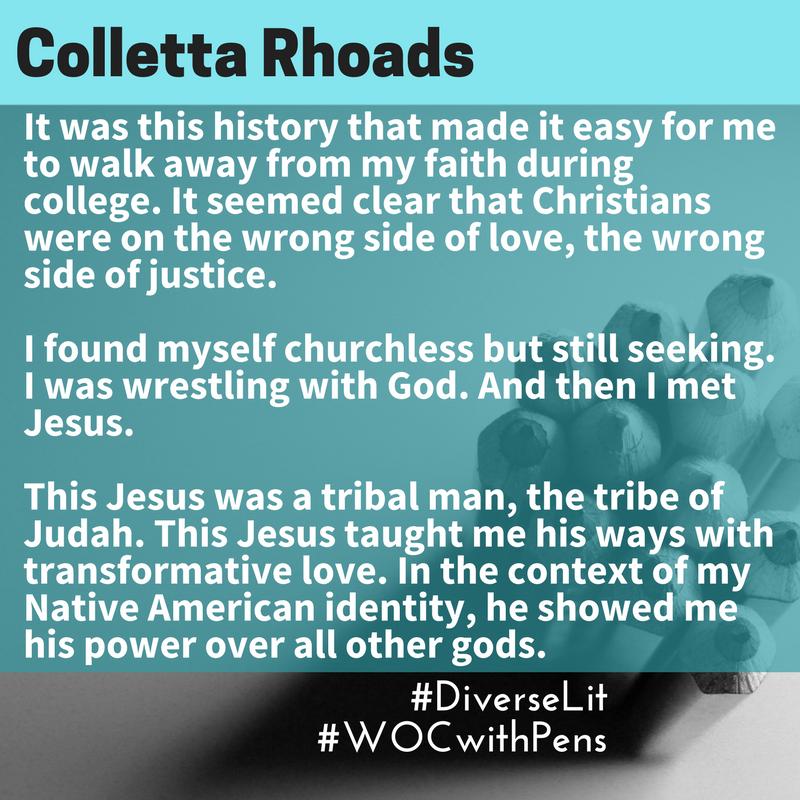
 RSS Feed
RSS Feed

